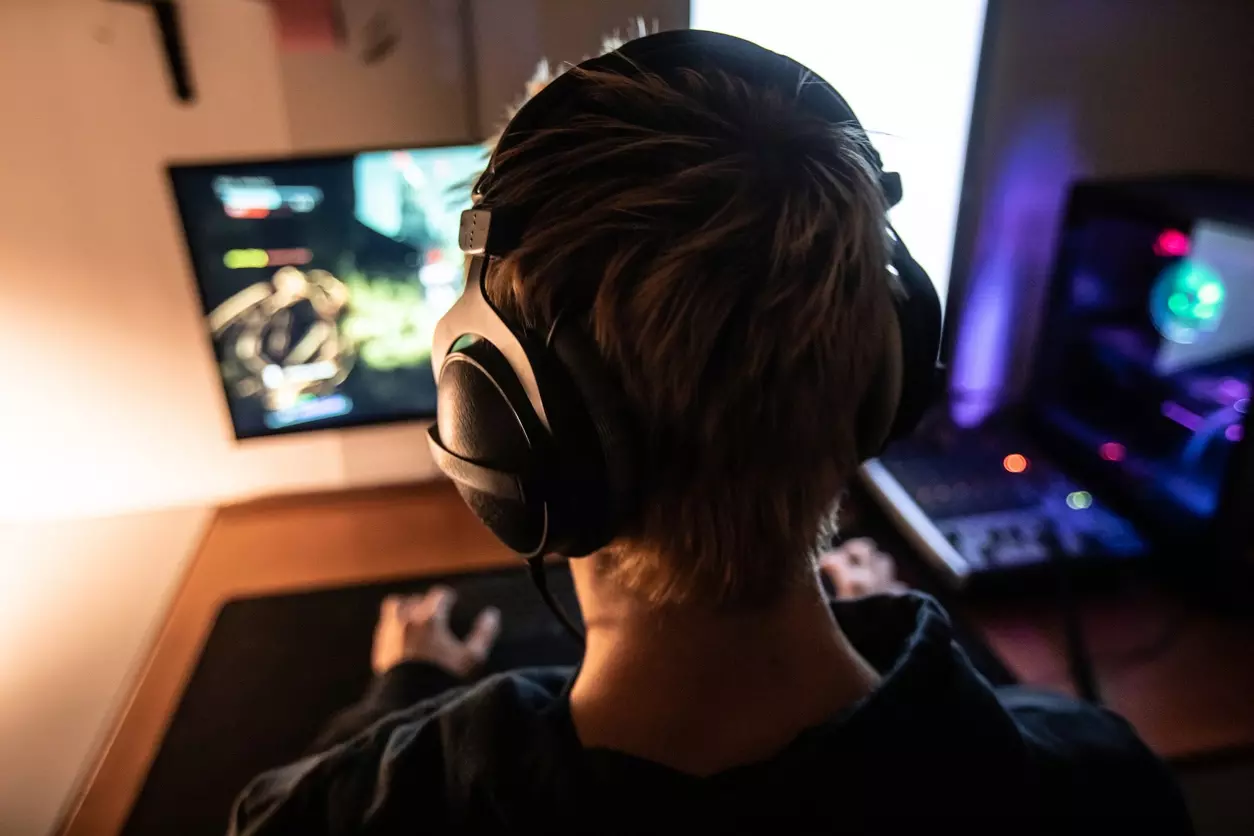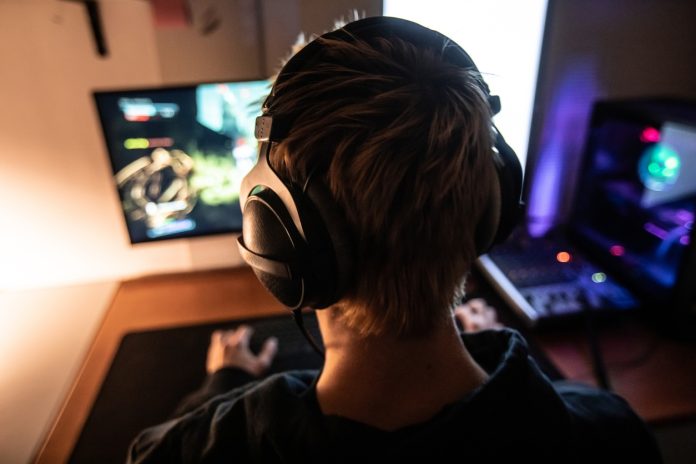
The Centre has flagged concerns over gaming addiction, money laundering, and financial fraud by online platforms. | Representative image: iStock
The Rajya Sabha on Thursday (August 21) passed the Promotion and Regulation of Online Gaming Bill, 2025, without debate, amid much ruckus. The Lok Sabha cleared the piece of legislation on Wednesday.
The Bill, piloted by Minister of Electronics and IT Ashwini Vaishnaw, seeks to ban all forms of online money games while promoting e-sports and online social gaming.
The law has faced immense controversy. Its supporters say it’s a much-needed step to curb online gambling, which is seen as a vice taking a heavy sociological toll, especially on the youth and school students. There are also people opposing it, saying the government should go for regulation rather than a blanket ban.
Also read | Centre tables bill to ban money-based gaming, eyes e-sports boost
What exactly is the issue? Can a ban truly be imposed, and how? We answer 8 questions on this.
1. What constitutes online gaming?
The online gaming ecosystem comprises a wide variety of segments, such as e-sports, casual and social games, educational games and online money games. It’s the last segment — online real money gaming — that the new Bill targets.
As the name clearly suggests, real money games (RMGs) are those that are played by depositing money in expectation of winning monetary and other rewards. According to the new law, an RMG is one where an entry fee or monetary deposit is required; whether you use your skill or luck to play/win the game is immaterial.
2. What does the new Bill say?
The Bill seeks to ban online money games and bar banks and financial institutions from facilitating or transferring funds for any such games. It prohibits such online money game platforms or their advertisements, prescribing fines, imprisonment, or both for violations.
It draws a clear distinction between money games and non-money games, such as e-sports and online social games. It says formal recognition of e-sports could help India participate in the global competitive gaming landscape, spur innovation, create opportunities for the Indian startup ecosystem and make the country a global magnet for game development.
RMGs, on the other hand, are “often opaque and may be designed to manipulate user engagement surreptitiously”, it says. “These games can also be operated by bots or undisclosed agents, undermining fairness and transparency,” it adds.
The Bill also holds celebrities and influencers, who endorse online money gaming platforms, accountable.
3. What triggered the nationwide online gaming ban?
The Centre has flagged concerns over gaming addiction, money laundering, and financial fraud by online platforms.
RMG is seen as a hugely disruptive activity, especially for children and the youth. “Reports and studies, both national and international, have highlighted the strong association between such games and compulsive behaviours, psychological distress, financial hardship, and the disruption of family and social life, thereby posing a serious public health risk,” says the Bill.
The games tend to be addictive, and to fund the hobby, people tend to take on huge debts or obtain money through fraudulent means, says the government. There have been instances of children using their parents’ money without their knowledge, and cases of suicides related to the stress caused by online money games have also been on the rise.
4. Which companies will feel the impact of the new law?
Online gaming platforms such as Dream11, Rummy Circle (Games24x7), Nazara Technologies, Winzo, GamesKraft, 99Games, KheloFantasy, My11Circle, PokerBaazi, and Adda52(Delta Corp), to name a few, will face a huge setback. A chunk of their revenue models is dependent on RMG formats.
PokerBaazi is owned by Moonshine Technologies, in which publicly listed Nazara Technologies holds a nearly 48 per cent stake. Nazara shares crashed nearly 22 per cent in just two sessions. Today, Nazara Tech plunged around 9.7% intraday, hitting Rs 1,103.15 on the NSE under heavy selling pressure.
This is a rough indicator of how big a financial impact the new Bill will have on the finances of RMG players.
5. What’s the Indian online gaming industry saying?
Speaking from the industry’s point of view, Karnataka IT and Biotechnology Minister Priyank Kharge said: “A ban kills India’s gaming talent pool and pushes entrepreneurs abroad.” Over Rs 23,000 crore of foreign direct investment (FDI) gained over the past five years could dry up, and about Rs 7,000 crore spent annually on ads, data centres, sponsorships, and cyber security would vanish overnight, he was quoted as saying.
In a joint letter to Union Home Minister Amit Shah, the Federation of Indian Fantasy Sports (FIFS), the E-Gaming Federation (EGF), and the All India Gaming Federation (AIGF) said a complete ban would be a “death knell” for the sector, destroying jobs and driving crores of users to illicit offshore gambling and betting sites.
“The only beneficiary of this Bill will be the illegal offshore gambling operators. If legitimate Indian businesses are shut down, unregulated actors will fill the vacuum. This will erode state and national tax revenues while leaving Indian users exposed to unregulated platforms,” it rued.
What about bans slapped by some states already? Does anything change in those states?
A few states, such as Tamil Nadu, Telangana and Karnataka, have already brought in legislation to rein in RMG.
Telangana’s Gaming (Amendment) Act, 2017, has expanded the meaning of wagering and betting to include acts that risk money on uncertain events, even if it’s a game of skill. The amendment has been challenged in the High Court of Telangana.
Tamil Nadu has passed an ordinance that bans betting or wagering of any kind in cyberspace using any communication devices or computers, through common gaming houses, and electronic transfer of funds to deliver prize money. Punishment for violation of this law includes a two-year term of imprisonment and a fine of up to Rs 10,000 or both.
The Karnataka Police (Amendment) Act, 2021 bans online gaming and betting, stipulating imprisonment of up to three years, a penalty of up to Rs 1,00,000, or both for contraventions of its provisions. Lawyers for the petitioners argued that the state does not possess the competence to legislate on games of skill. The Karnataka High Court reserved its order on a batch of petitions challenging the constitutionality of the law in All India Gaming Federation v State of Karnataka.
The Andhra Pradesh Gaming (Amendment) Act, 2020, also places restrictions on online games such as rummy, designated as a game of skill.
6. How can the ban be imposed? Can people circumvent such bans to continue playing RMGs?
The new Central law doesn’t specify how exactly the ban will be implemented. It only says RMGs are harmful, and the action is imperative. It talks of a “robust legal framework” to “prohibit online money gaming in the country” and “to regulate, promote and encourage the sector for innovation and economic growth and ensure a developed, safe and responsible digital environment for all citizens”.
States have the constitutional authority to regulate gambling and betting under Entry 34 of the State List. A state can thus pass a specific law banning online RMGs.
Now that the Centre has passed the Bill, it could issue takedown/block orders on the RMG apps. It could also request Google (Play Store) or Apple (App Store) to remove specific apps from their platforms. Further, it could direct Internet Service Providers (ISPs) to block websites or URLs offering banned games. But these are suppositions.
Various porn sites, and Chinese apps such as TikTok, have been banned by the Centre using these steps. Whether people can circumvent the ban depends on how far, how ‘well’ they can use technology.
7. How’s the online gaming scene in other nations? Is it regulated in other countries?
Several countries allow RMG, but regulate it heavily to prevent underage gambling, ensure fair play, monitor financial transactions and collect tax revenue.
For instance, in Britain, one of the most regulated RMG markets, the UK Gambling Commission licenses and monitors online gaming operators. Italy, Spain, France and Sweden have national regulatory bodies with licensing systems.
Australia allows online sports betting through licensed operators, but has banned online casino games.
China has banned all forms of online gambling. Enforcement is strict, including blocking platforms and arresting operators. Similarly, the UAE strictly prohibits RMG under Sharia law. Offenders face heavy penalties. Qatar, Brunei, Lebanon and other nations prohibit online gambling due to religious reasons.
The nations that disallow or regulate RMG have strict licensing and other rules. They use geo-blocking at the ISP level to prevent access to illegal sites. They also request the removal of apps offering illegal games.
These nations also go for financial surveillance, directing banks to block gambling-related transactions.
8. What happens next?
Domestic gaming groups are holding discussions with lawyers about moving the Supreme Court to challenge the ban, say media reports. They are pointing to a lack of consultation, the impact on a thriving industry, and how some RMGs like poker are skill-based and should be exempted.
Whether they will actually take legal recourse is yet to be seen.
